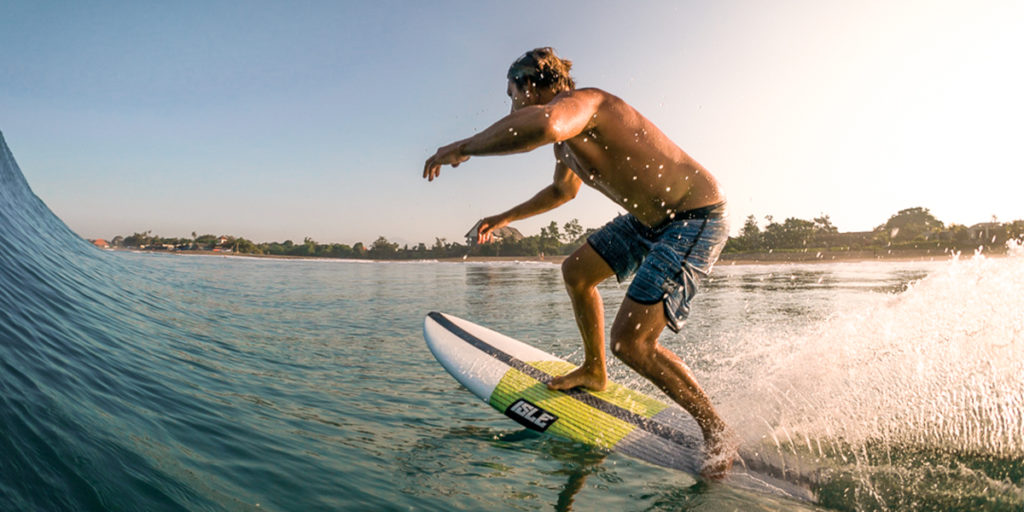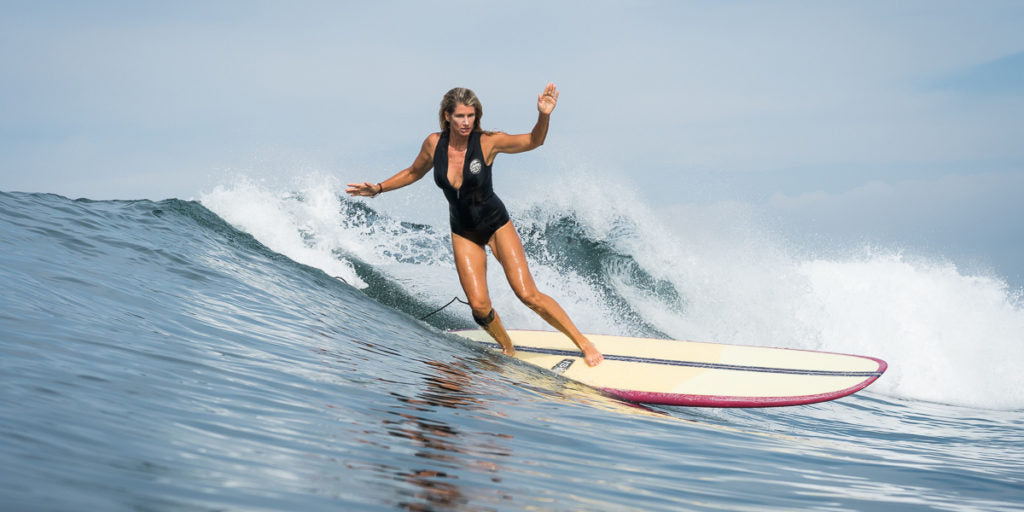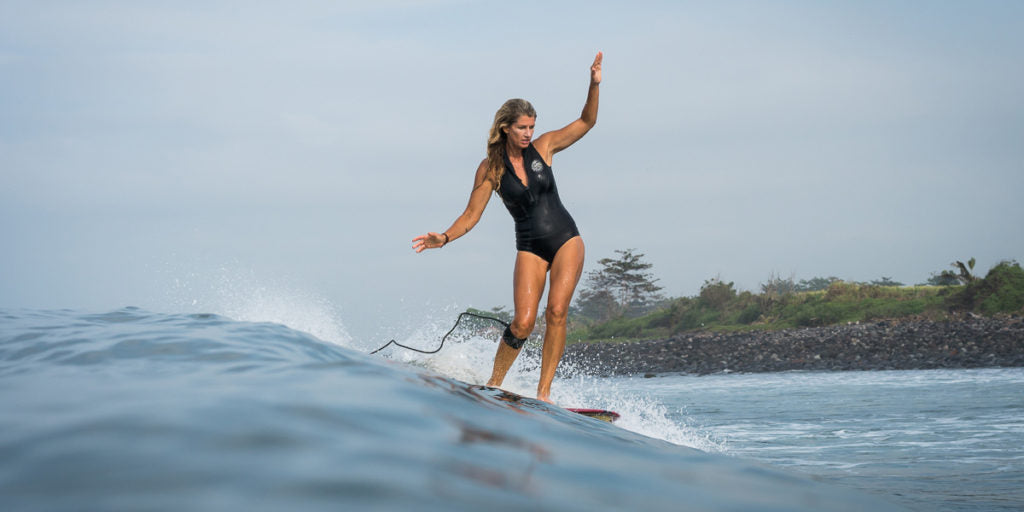



Posted on July 26, 2019 by Jeff Hale
Identifying your surfing stance is one of the keys to learning to surf. In fact, one of the biggest differences between a beginner surfer and everyone else is where they stand on their surfboard. In order to help you find the correct footing to distribute your weight properly, you’ll first need to determine if you’re a “goofy” or a “regular” stance surfer. And don’t worry, there’s no wrong answer here -- it’s all about being comfortable out in the water.
Your feet should be shoulder-width apart when standing on a surfboard. But much like determining if you’re right- or left-handed, finding out which way you should stand on a surfboard is a matter of preference and comfort, no matter if you’re riding a longboard or a shortboard. So, rather than trying to surf goofy like Australian world surfing champion Mark Occhilupo, or regular like American world surfing champion Kelly Slater, you want to identify your dominant foot.
Your dominant foot is the foot you’d use to kick a ball. If it’s been a few years since you’ve played soccer, there’s another test. Run forward and jump as high as you can off one leg. Which leg did you use to jump? If you jump from your right leg, that’s your dominant foot and you’re probably a regular-footed surfer. If you jump off your left leg, then you’re probably a goofy-footed surfer. Either way, it’s all about comfort and balance on the board. Stick with what’s most comfortable and natural.

In surfing terms, being “goofy-footed” means you’re most comfortable standing on a surfboard with your dominant (left) foot near the surfboard’s tail. And just because people like to call it goofy, doesn’t mean there’s anything silly or less desirable about it. Famous goofy-footed surfers include longboard surfing legend Robert August of The Endless Summer fame, modern style master Joel Tudor, and Gerry “Mr. Pipeline” Lopez. So, if you find yourself more comfortable with your right foot as your front foot, you’re in great company.

Being “regular footed” means you’re like most surfers who prefer to ride with their dominant (right) foot on the tail. Around 70% of surfers fall into this category, including the father of the sport, Duke Kahanamoku, professional surfing pioneer Corky Carroll, and 7x women’s world surfing champion, Stephanie Gilmore.

Now that you have the right body position figured out, it's time to talk about your knees. Your knees are crucial for maintaining balance. You want to bend your knees and get into a low stance for wave riding. One of the biggest surfing stance mistakes beginners make is pointing their knees out too far. You’ll know your knees are too far out if you look like you’re sitting on a toilet, which is why it’s called the poo stance -- it’s one of the hallmarks of first-time surfers and it’s highly frowned upon by surf coaches and instructors. Try to keep your legs and knees in line with your shoulders or even pointed in slightly like the skilled surfer pictured above.

Once you catch a wave and pop up on your board, you’ll want your feet to land dead center over the wood stringer and toward the back of the board with consistency. If you don't center your feet, you’ll find yourself moving side to side or turning unexpectedly. For example, if your front foot lands too close to your left rail, you’ll naturally start pushing the board into a left turn. If you pop up too far forward -- meaning your front foot lands too close to the nose -- you’ll struggle with shifting your weight back enough to avoid pearling (nosediving). If you always think about placing your back foot near the tail of the surfboard, it should become muscle memory and your front foot should land in the proper spot, allowing you to control your movement.

Foot placement for advanced surfers is anything but static. Once you’ve had many lessons, dialed in the perfect surfing stance, and can hit your marks with consistency, it’s time to graduate to moving your feet. Eventually, you’ll notice how a few inches of movement on your board can make a world of difference when attempting to gain speed, slow down, or turn on a dime. These adjustments are especially important when surfing small waves. Generally speaking, moving to the front of the board is the easiest way to create speed on a wave, while sticking to the back of the board is the easiest way to dig into a turn.
So, set a solid foundation and start experimenting with small changes in your foot placement as you learn to surf. That's the easiest way to make the transition from a beginner to an intermediate surfer and start shredding out in the water.

For over 21 years, ISLE's mission has remained the same - to inspire & equip for a life that's Better in Balance™ through adventure on the water.
We are the trusted leaders in inflatable paddle boards, dedicated to innovating and redefining what paddle boards can do.
Every ISLE product is covered by an industry-leading 2-year or 5-year warranty against defects in workmanship and materials for your peace of mind.
Orders ship the same or next day, and we offer package protection for added peace of mind.
We offer a 60-day trial period from the date of purchase to make sure you love your new gear.
SIGN UP FOR OUR NEWSLETTER
Sign up for our emails and be the first to know about exclusive deals, limited time offers, and big savings as soon as they drop.
Copyright © 2026 Paddle Boards and Surfboards By ISLE Surf & SUP. All Rights Reserved